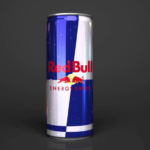Red Bull recently filed a complaint in the United States District Court for the District of New Jersey against a wholesaler for distributing gray market energy drink products in this country. Intended for sale in South Africa and not in the United States, Red Bull asserted the unauthorized energy drinks violated Federal Drug Administration requirements as well as Red Bull’s intellectual property rights. More particularly, the energy drink giant accused Quality Wholesale Distributors of trademark infringement, unfair competition, and trademark dilution.
Quality allegedly has been involved in the importation, sale, promotion, and distribution of the gray market Red Bull drinks. Such gray market products are authorized for sale in selected foreign countries, such as South Africa, to “reflect differences in terms of language, government regulations and units of measurement,” according to the complaint. Red Bull claimed the gray market products have not been subject to its quality control standards, do not contain adequate universal product codes for tracking, nor do they display beverage container deposit information, as required in many states.
Gray market goods, or parallel imports as they are more properly known, are branded goods sold outside of the brand owner’s authorized distribution channels. Parallel imports are not intended for sale domestically by the trademark owner and may have been formulated or packaged differently for sale in foreign markets. This is distinguishable from counterfeit goods, which are identical but not genuine. In contrast, parallel imports have been produced by, for, or under license from the trademark owner.
While often referred to by trademark owners as bootleg products, gray market goods are actually acquired legally abroad then imported into the United States without the trademark owner’s consent. Because of the legal acquisition of the goods, such actions do not legally constitute trademark infringement under the Lanham Act absent “legal confusion.” In particular, legal confusion will be found where the gray market goods are “materially different” from that of the trademark owner. Courts have looked to a number of different elements in finding “material differences,” including labelling, packaging, structural strength of product components, product composition, and storage of material. Further, services provided with the product, warranties or lack thereof, as well as, the trademark owner’s superior internal quality control standards may also constitute material differences.
Parallel imports remain problematic for both trademark owners and the consuming public. Importation of gray market products can cause the trademark owner to lose its ability to control the quality of goods bearing its brand as well as ensure the goods satisfy United States government regulations. More than that, even if the products are of high quality, often products are tailored to specific preferences of a particular market. Because of this, trademark owners suffer from an inability to ensure United States consumers are receiving goods designed for their consumer tastes. Trademark owner may subsequently lose goodwill if the gray market products negatively impress upon consumers in this country. As to consumers, the parallel import may be formulated for particular conditions, such as weather or different electrical sockets, that exist in other countries but not the United States. Consumers may then be unable to use or enjoy the products due to these disparities.
Remarkably, this is not the first time Red Bull has defended its brand against the unlawful distribution of gray market energy drinks. In 2006, the energy drink company sued a Georgia-based company for its unauthorized distribution of gray market products. In that suit, Red Bull ultimately obtained a $2.1 million verdict and a permanent injunction prohibiting further infringement and dilution. Again, in 2009, Red Bull brought suit in New York claiming gray market energy drinks were being diverted from foreign countries in which the sale was authorized into the United States. Subsequently, the United States International Trade Commission issued a general exclusion order prohibiting the importation of unauthorized Red Bull energy drink products into this country. As a result of this order, the United States Customs Department was to intercept any gray market products from United States ports.
If successful in proving Quality’s gray market energy drinks are materially different from those sold by Red Bull, Red Bull may be able to obtain damages for customer dissatisfaction, diminution in the value of the goodwill associated with its trademark, and loss of sales and market shares to Quality. Red Bull is also seeking attorney’s fees, treble damages, as well as any profits gained by Quality as a result of its sale of the energy drinks. Of course, Red Bull has also requested an injunction preventing the further sale of gray market energy drinks.

